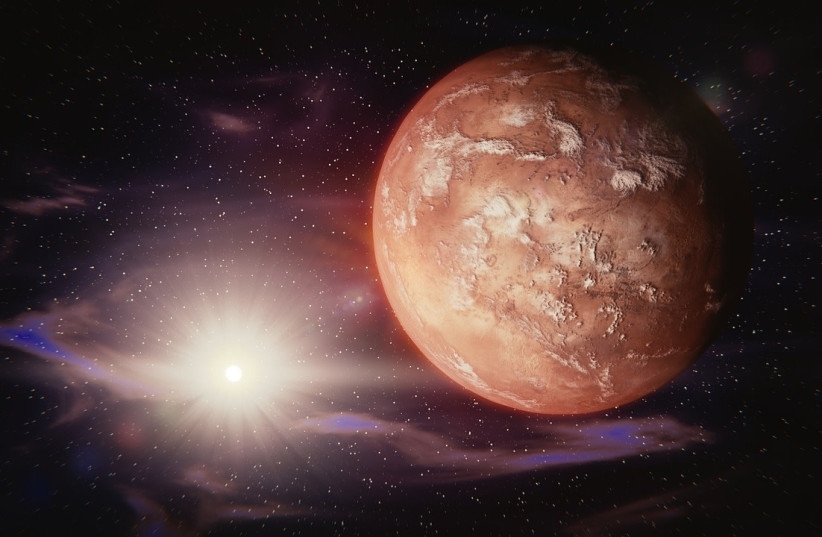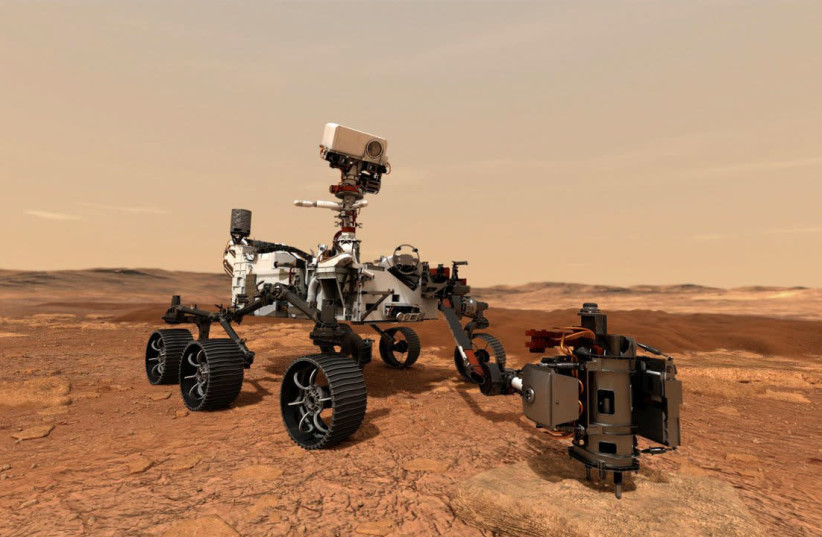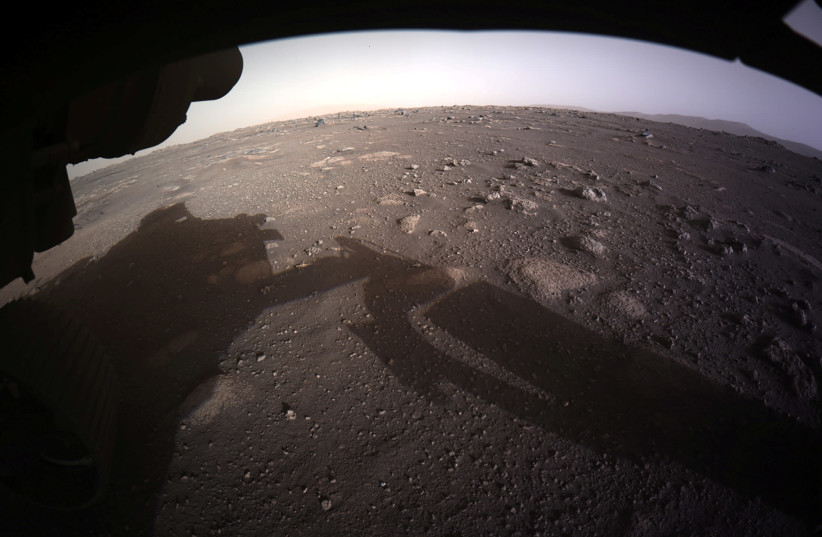Mars' speed of sound is different than Earth's - study
The SuperCam microphone on the Perseverance has allowed the sounds of Mars to be heard properly, revealing new discoveries.

The speed of sound on the planet Mars is different than it is on our planet Earth, according to studies conducted by scientists, which were revealed during the 53rd Lunar and Planetary Science Conference.
To reach this conclusion, researchers of the study, which was peer-reviewed, used the SuperCam microphone that is equipped on the Perseverance to measure sound speed on the planet. The measurement can be determined by "using the propagation time of the laser-induced acoustic signal as it travels from the ground up to the microphone height," according to the study.
The research suggests that even trying to talk in the red planet's atmosphere might produce a weird sound effect, but any attempts to speak on Mars would be futile - as the planet's atmosphere is unbreathable. What researchers know about the Martian atmosphere is that it is weaker than Earth's.
Scientists were also able to use the SuperCam to measure temperature changes on Mars – and sound speed also changes as a result of temperature fluctuations.
Sound speed measured by SuperCam is "converted into temperatures using the ideal gas." In order to find the acoustic temperature, the number of the associated temperatures is multiplied by the sound speed and then divided by the atmosphere's molar weight.
Perseverance (credit: REUTERS)
The acoustic temperatures that were recorded are well correlated with the Mars Environmental Dynamic Analyzer (MEDA), the weather station of Perseverance, but are higher than MEDA temperatures.
The SuperCam microphone on the Perseverance allows the sounds of Mars to be heard properly, despite the differences of sounds that Earth and Mars produce. For example, in March 2021, the rover managed to capture audio clips of laser zaps on another planet for the first time by using its hi-tech microphone.
The first high-resolution, color image to be sent back by the Hazard Cameras (Hazcams) on the underside of NASA's Perseverance Mars rover is seen after its landing on Mars February 18, 2021. (credit: NASA/JPL-CALTECH/REUTERS)
The Perseverance, NASA's Mars rover, made a historic landing on the red planet in February 2021 on a mission to search for traces of ancient microbial life.
Last September, the spacecraft collected its first Martian rock sample, the first to be obtained from another planet. Future missions will be dedicated to bringing some of those samples back to Earth.
THIS PAGE WAS POSTED BY SPUTNIK ONE OF THE SPUTNIKS ORBIT BLOG



No comments:
Post a Comment
Stick to the subject, NO religion, or Party politics